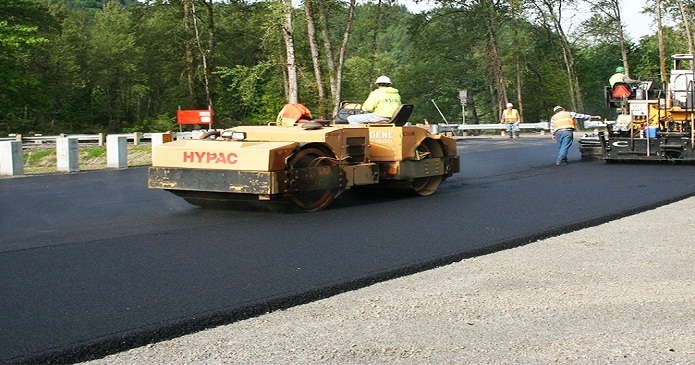A section of road, one kilometer long, made of plastic waste, is being built by Dow Vietnam in an ecological industrial zone of Deep C in Hai Phong City.

More time and experiments will be needed to find out if the road is suited to the local weather conditions and economical. However, scientists believe that using plastic waste to make roads is a good solution to reduce waste in the country.
Expected to be completed by September 2019, the section of road will use nearly 4 tons of plastic packaging. The US-based chemicals group has built more than 90 kilometers of roads from plastic waste in India, Indonesia, Thailand and the US, and used the techniques in Thailand before this project in Vietnam.
In Thailand, plastic waste-made roads have a higher durability since of 15-30 percent than roads made with traditional methods, and they are waterproof and heat resistant, according to a representative of Dow Vietnam.
The ratio of plastic in asphalt mixture varies from 2 to 10 percent, depending on the mixing method. Recycled plastic is only half the price of asphalt, and is more economical for the same quality.
Disposable plastic waste, instead of ending up on dumping grounds or in the sea, could be used to make roads. The solution not only helps settle environmental problems, but also opens a new market for this kind of waste and accelerating the ‘circular economy’.
|
After being cleaned, dried and ground, plastics will be mixed with bitumen at the temperature of 150-180oC. Roads made of plastics could also help reduce greenhouse gas emissions when replacing a part of bitumen, a substance needed in asphalt. |
After being cleaned, dried and ground, plastics will be mixed with bitumen at the temperature of 150-180oC. Roads made of plastics could also help reduce greenhouse gas emissions when replacing a part of bitumen, a substance needed in asphalt.
About 80 tons of plastic waste are discharged daily in Hanoi and HCMC.
Dow Vietnam hopes its project can attract the attention of local authorities and waste collection units to form a plastic value chain in which members join forces to settle plastics-related problems. However, the biggest problem is connecting the relevant parties.
Do Thanh Bai, deputy chair of the Council of Social Responsibility of Chemicals Enterprises, is optimistic about the scenario of using plastic waste to partially replace asphalt in infrastructure development.
However, he warned that in order to do this, Vietnam will have to collect clean plastic waste and sort the waste at source. This is the biggest challenge in Vietnam.
RELATED NEWS
VN commits to reduce ocean plastic waste
Vietnam plastic waste among highest in world
Thien Nhien
 Making roads from plastic waste is a solution that would use disposable plastic waste, which is used in high quantities in Vietnam.
Making roads from plastic waste is a solution that would use disposable plastic waste, which is used in high quantities in Vietnam.